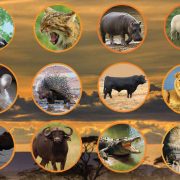Chance and randomness are fundamental aspects of both natural phenomena and human-designed systems. Understanding how randomness influences the environment, animal behavior, and modern entertainment reveals a fascinating interconnectedness. This exploration traces the evolution of chance, illustrating its significance from ancient fishing techniques to contemporary gaming innovations.
- Understanding the Role of Chance in Nature and Human Activities
- The Evolution of Chance and Randomness in Natural Contexts
- Technological and Cultural Innovations in Managing Chance
- Commercial Exploitation of Chance: The Global Fishing Industry
- From Nature to Gaming: The Science of Chance in Entertainment
- The Mathematics of Chance: Probability Theory and Its Applications
- Ethical and Societal Implications of Manipulating Chance
- Deep Dive: The Intersection of Chance, Technology, and Human Behavior
- Conclusion: Embracing the Unpredictable—Lessons from Fish to Gaming
Understanding the Role of Chance in Nature and Human Activities
Defining chance and randomness: Basic concepts and significance
Chance, often equated with randomness, refers to outcomes that are unpredictable or determined by factors beyond direct control. In nature, randomness manifests in phenomena like weather patterns or genetic variation, where chance influences survival and evolution. In human endeavors, chance underpins activities such as gambling, scientific experiments, and decision-making processes, highlighting its crucial role in shaping outcomes.
Historical perspectives: How humans have perceived and harnessed chance over centuries
Ancient civilizations recognized the influence of chance, developing tools and methods to manage uncertainty. For instance, the Greeks employed dice and devised early probability concepts, while Chinese cultures used divination techniques. Throughout history, humans have sought to harness chance—whether through games of luck or strategic risk-taking—to gain advantages or predict outcomes.
The importance of studying chance: From survival strategies to modern gaming
Understanding randomness is vital for survival—animals rely on it during foraging or migration—while humans have formalized the study of probability to improve decision-making, optimize strategies, and enhance entertainment experiences. Modern gaming, such as online slot machines, exemplifies how mastery over chance mechanisms can create engaging and seemingly unpredictable experiences.
Natural phenomena influenced by chance: Weather, genetic variation, and ecological interactions
Natural systems are inherently stochastic. Weather patterns fluctuate due to complex interactions of atmospheric variables, often modeled with probabilistic tools. Genetic variation arises from random mutations and recombination, providing the raw material for evolution. Ecological interactions—such as predator-prey dynamics—are also affected by chance events, shaping biodiversity and ecosystem resilience.
Animal behaviors and chance: Foraging, migration, and survival strategies
Animals frequently incorporate randomness in their behaviors. For example, many fish species disperse unpredictably during spawning migrations, increasing their chances of survival. Foraging strategies often involve random search patterns, like the Lévy flights observed in search behaviors, which optimize resource discovery in uncertain environments.
Case study: Ancient Greeks using poison to stun fish—an early manipulation of chance
Ancient Greeks employed natural poisons, such as those derived from plants or minerals, to stun fish, effectively manipulating the likelihood of successful catch. This technique exemplifies early understanding—intuitive or empirical—of how altering environmental variables can influence outcomes influenced by chance, a precursor to modern fishing technologies.
Invention of devices to measure randomness: From fishing bobbers to modern sensors
Tools to gauge and influence chance have evolved significantly. The fishing bobber, originating centuries ago, allowed anglers to detect subtle bites by observing water movement, effectively increasing their fishing success. Today, modern sensors and electronic devices measure environmental variables—like water temperature or fish movement—enhancing decision-making in both fishing and scientific research.
The fishing bobber: Its origin, function, and role in increasing fishing success
The bobber’s simple yet effective design helps fishermen monitor fish activity, providing a visual cue that a fish has taken the bait. By reducing guesswork and increasing the likelihood of catching fish, it exemplifies how a straightforward technological innovation can harness natural chance, a principle echoed in many modern devices used to improve outcomes in uncertain environments.
Cultural adaptations: How different societies have used tools and techniques to influence outcomes
Various cultures developed unique methods to manipulate chance outcomes. For example, Japanese fishermen used specific netting techniques and timing to improve catch rates, while indigenous communities employed ritual and spiritual practices believed to influence natural forces. These adaptations underscore the human desire to understand and control randomness, blending technological and cultural approaches.
Scale and economic importance: Over 38 million employed worldwide
The fishing industry is a massive global enterprise, supporting millions of jobs and contributing significantly to economies. Its success relies heavily on understanding natural variability and chance, as fishermen seek optimal times and locations for harvest, often guided by environmental cues and probabilistic models.
Techniques and technologies: Modern fishing methods and their reliance on chance and probability
Methods like trawling, purse seining, and longlining utilize advanced technology—sonar, GPS, and predictive models—to increase efficiency. These tools account for the stochastic distribution of fish populations, aiming to maximize catch while managing ecological impacts.
Sustainability and risk: Managing uncertainty in large-scale fishing operations
Balancing economic gains with ecological sustainability requires understanding probabilistic risks—such as overfishing and stock collapse—emphasizing the importance of responsible management practices informed by scientific models of chance and variability.
The concept of randomness in gaming: Fairness, unpredictability, and player engagement
In gaming, especially in slot machines and online casinos, randomness ensures fairness and maintains player interest. Unpredictable outcomes foster excitement and trust, making the perception of chance a critical element in game design.
Case study: Fishin’ Frenzy and the role of chance in slot game design
“Fishin’ Frenzy” is a popular slot game that exemplifies how natural phenomena—like fish movement—are simulated through sophisticated algorithms to generate random spins. Its design incorporates a payout structure that mimics real-world unpredictability, offering players an experience grounded in the principles of chance. For details on its payout structure, you can explore the A_K_Q symbols payout table.
How modern games simulate natural randomness: Algorithms, RNGs, and player experience
Modern gaming relies on pseudorandom number generators (RNGs) to produce outcomes that are statistically indistinguishable from natural randomness. These systems ensure fairness, unpredictability, and compliance with regulatory standards—further illustrating how chance mechanisms are engineered to enhance entertainment while maintaining trust.
Fundamental concepts: Probability, odds, and expected value
Probability quantifies the likelihood of an event, expressed as a number between 0 and 1. Odds compare the chances of success versus failure, while expected value provides the average outcome over many trials. These concepts underpin decision-making in fishing—such as choosing bait or time—and in gaming, influencing strategies and design.
Modeling natural and gaming scenarios: From fish behavior to slot spins
Mathematical models simulate complex systems, allowing predictions of fish movement patterns or slot machine payouts. For example, Markov chains and probability distributions help in understanding how random events evolve over time, guiding both fishermen and game developers in optimizing outcomes.
Non-obvious insights: How understanding probability influences decision-making in fishing and gaming
A deep grasp of probability reveals hidden advantages—such as selecting fishing spots with higher catch probabilities or designing slot games with optimal payout ratios. Such knowledge empowers humans to navigate uncertainty more effectively, turning chance from mere randomness into a strategic tool.
Ethical considerations: Responsible fishing, gaming regulations, and fair play
Manipulating chance raises questions about fairness and responsibility. Overfishing driven by probabilistic models can threaten ecosystems, while unregulated gaming may foster addiction or exploitation. Regulatory frameworks aim to ensure transparency, sustainability, and ethical conduct in both sectors.
Societal impacts: Economic reliance on fishing and gaming industries
These industries are vital economic pillars in many regions. Their success depends on balancing technological innovation with societal well-being, underscoring the importance of informed policies that respect ecological limits and promote fair play.
Future challenges: Balancing innovation, sustainability, and fairness
As technology advances, ensuring that manipulations of chance remain ethical and sustainable becomes paramount. Innovations like AI-driven fishing or adaptive game algorithms must be managed responsibly to protect natural resources and uphold societal trust.
The psychology of randomness: Why humans chase luck and how it affects behavior
Humans are naturally drawn to randomness—lotteries, casinos, and even fishing trips—driven by the thrill of unpredictability. This pursuit of luck influences decision-making, sometimes leading to riskier behaviors or innovations aimed at increasing chances of success.
Technology’s role: Enhancing or undermining natural and artificial chance
Technological tools can amplify the effectiveness of managing chance—improving fish catch rates or designing fairer games—but can also distort natural patterns if misused. Responsible application of technology is essential for maintaining balance and trust.
Non-obvious connections: How understanding chance shapes policy, innovation, and cultural perceptions
Recognizing the pervasive influence of chance informs policies on resource management, gambling regulation, and technological development. It shapes cultural attitudes, fostering a deeper respect for the unpredictable yet patterned nature of our world.
Summarizing the journey from natural chance to modern entertainment
From ancient fish-stunning techniques to sophisticated slot machines, the role of chance has remained central. Understanding its principles enables humans to innovate responsibly, balancing opportunity with sustainability.
The enduring significance of understanding and respecting chance
A comprehensive grasp of randomness fosters ethical decision-making, enhances technological design, and promotes societal trust—highlighting that respecting chance is essential for progress.
Final thoughts: Applying knowledge of chance to innovation and responsible decision-making
By studying and embracing the unpredictable, we can develop smarter technologies, sustainable practices, and fair systems—turning the inherent uncertainty of nature and human activity into opportunities for growth and stability.





